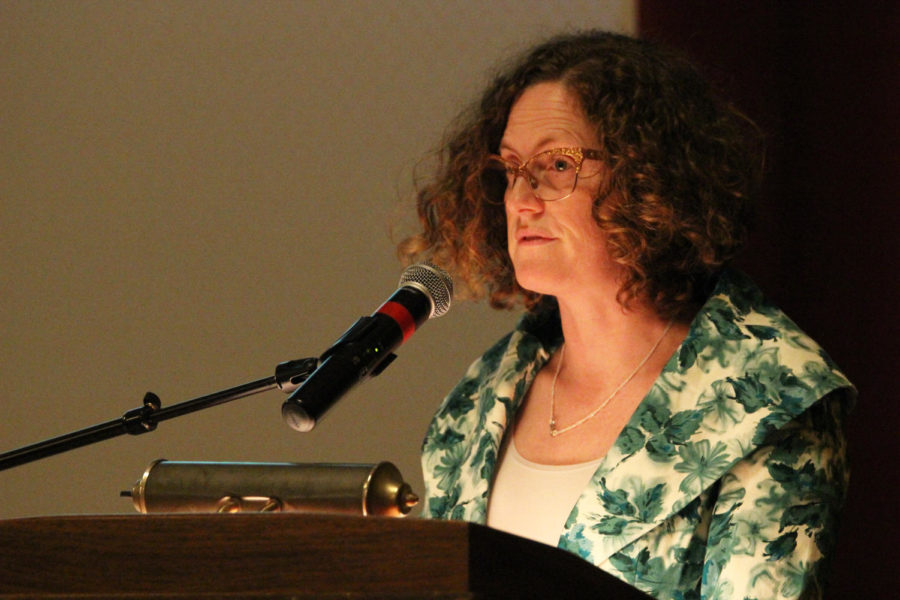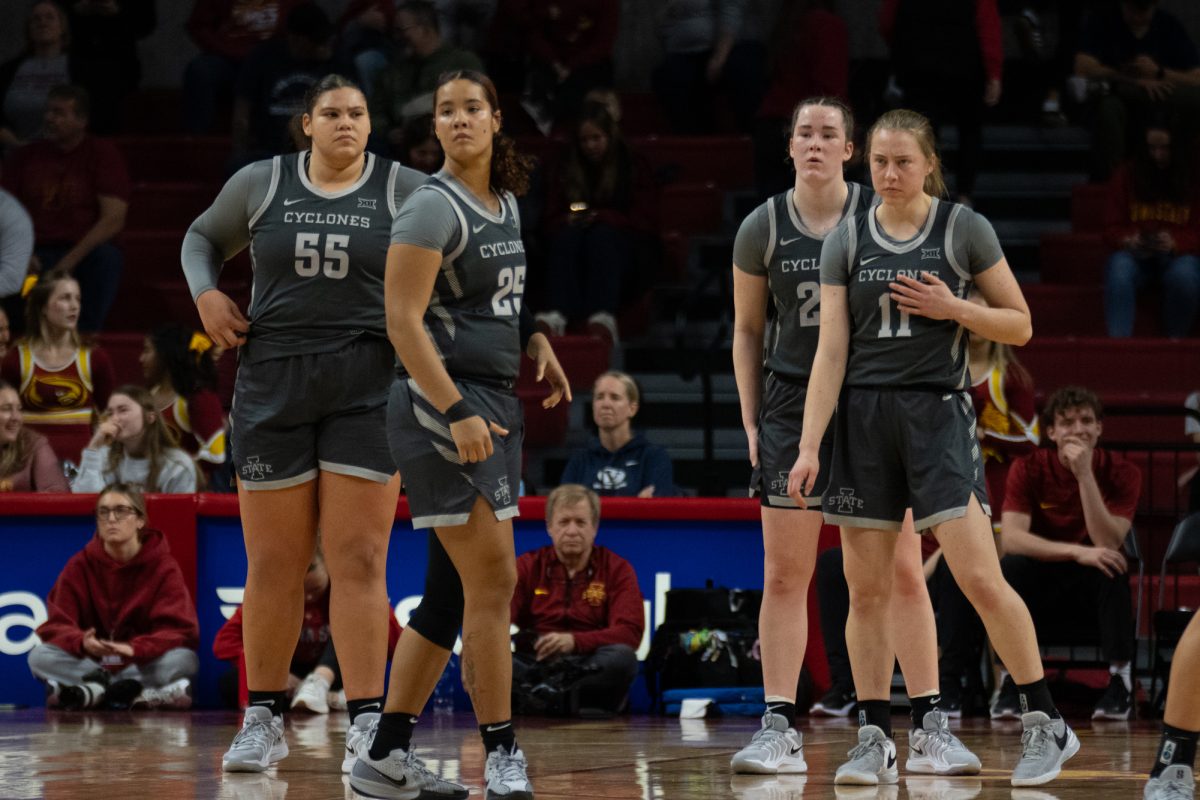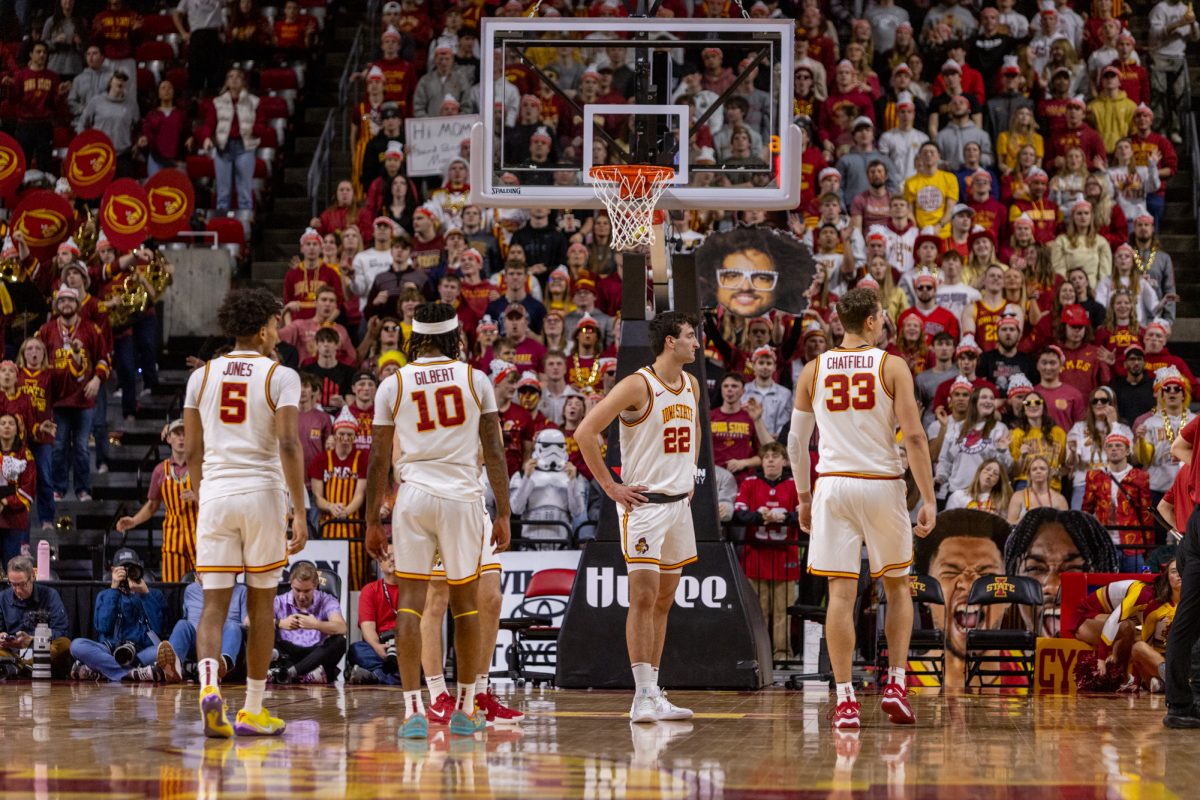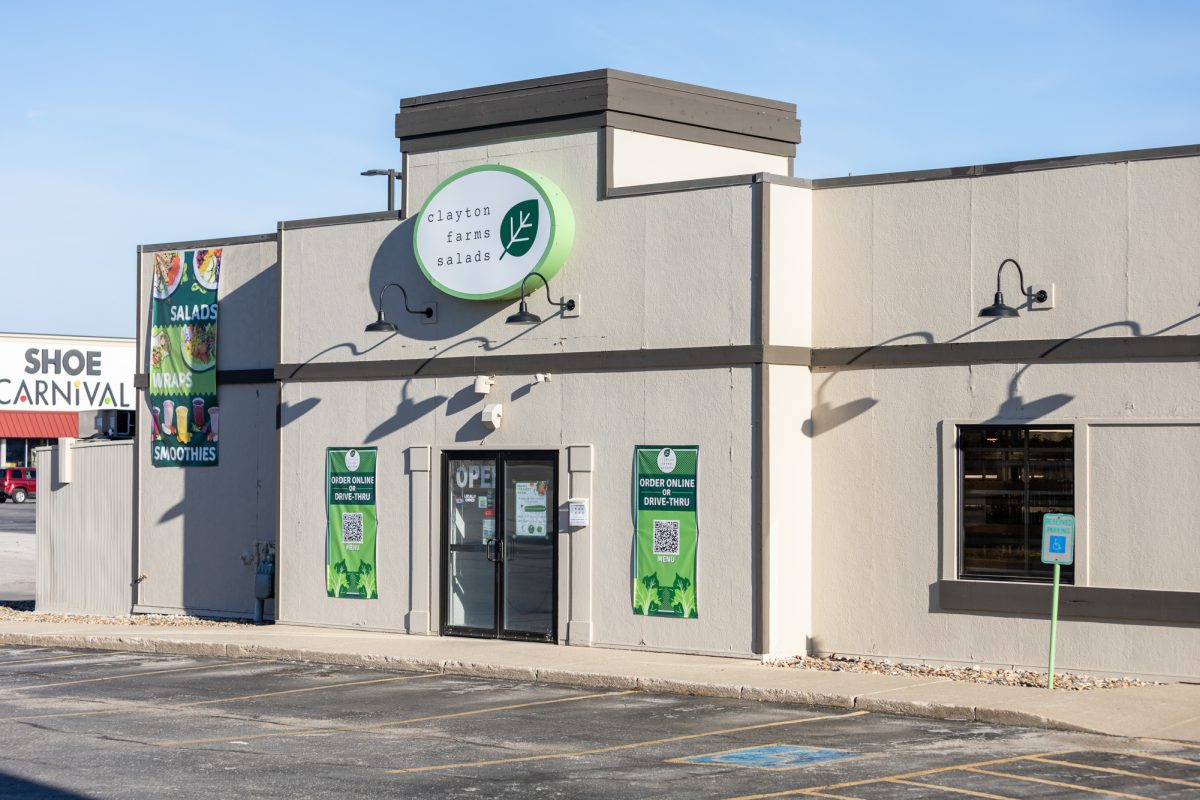Lecturer discusses treatment of Jews by Americans after World War II
Gillian Holte/Iowa State Daily
Kierra Crago-Schneider, program officer at the Jack, Joseph and Morton Mandel Center for Advanced Holocaust Studies at the United States Holocaust Memorial Museum, spoke in the Great Hall of the Memorial Union on April 17. Crago-Schneider talked about Jewish Displaced Persons and their treatment from the Office of the American Military Government.
April 17, 2017
U.S. military personnel tasked with caring for displaced Jews after the Holocaust were not free of anti-semitic beliefs.
That was the focus of lecturer Kierra Crago-Schneider’s lecture in the Great Hall Monday night.
“The United States was not free of Jew hatred,” Crago-Schneider said. “At the time many universities, country clubs and private schools remained closed to Jews even after the end of the war.”
Crago-Schneider was quick to point out that this didn’t necessarily translate into ill care at first.
“Overall, American liberation troops did go above and beyond to help survivors,” Crago-Schneider said.
Crago-Schneider works as a program officer at the Jack, Joseph and Morton Mandel Center for Advanced Holocaust Studies at the United States Holocaust Memorial Museum.
Crago-Schneider explained a degradation of relations between American military personnel and displaced people, including Jews. The original liberators, who were very sympathetic to the Jews, were eventually replaced with long-term personnel. These new troops were not as understanding of the refugees’ situations as the liberators had been, Crago-Schneider said.
“These soldiers were not trained as caregivers,” Crago-Schneider said. “Many of the liberators understood what the Jews had went through because they saw it firsthand. However, the new troops were often inexperienced and unsympathetic. They saw the Jews as unhygienic, uncivilized and needy people.”
Crago-Schneider pointed out that high-ranking members of the American military knew there was a problem with relations between troops and refugees and sought to improve the situation. However, any progress done by education of troops could be undone just as easily, Crago-Schneider said.
“When [the American troops] met with refugees they saw them as uncivilized people and everything they had been taught was undone,” Crago-Schneider said.
The talk was given to a nearly full audience in the Great Hall.
Anna Vymetal, freshman in agronomy, was surprised to learn how Jews were actually treated by American soldiers.
“I was always taught in history class that the allies had saved people from the concentration camps and were the heroes,” Vymetal said. “Never was I told about the mistreatment that went on after the war ended.”
Jeremy Best, assistant professor of history, initially reached out to schedule the talk.
“I think it’s important to have an expert come out here and really connect students and the community with the expertise that exists on the subject,” Best said.
Crago-Schneider ended the presentation by reminding the audience that while American policy toward care for displaced persons was good, antisemitism and political changes hampered relations between American soldiers and Jewish refugees following the war.







